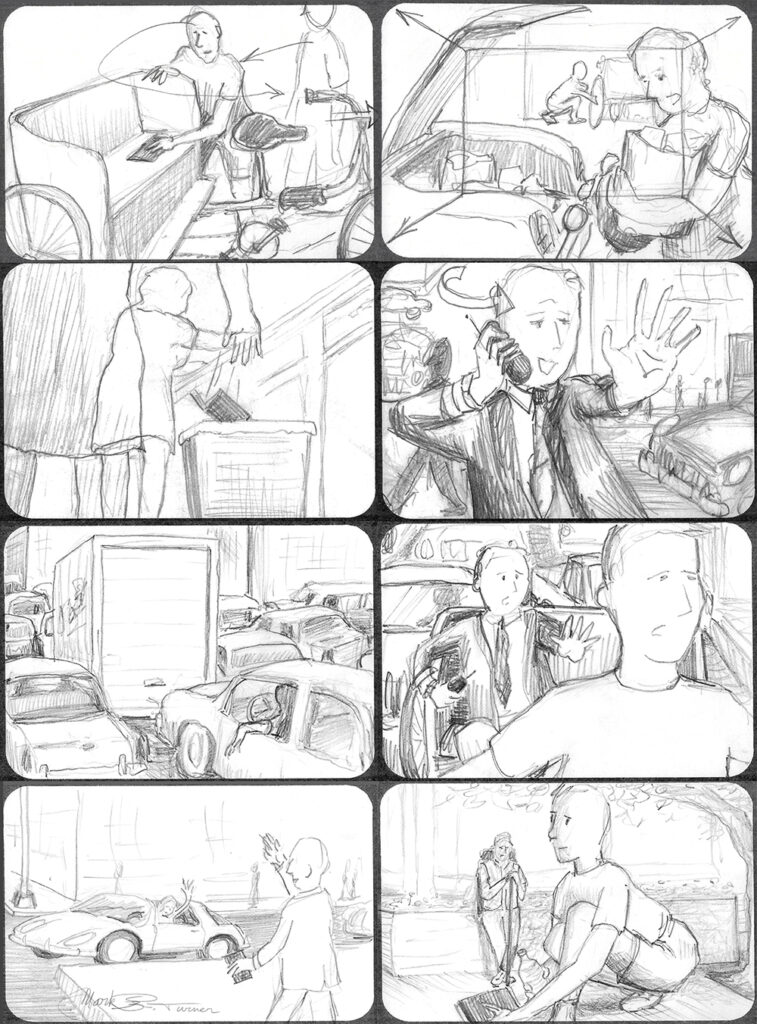
An old professor of mine, Robert McKee, who has since become the world authority on “Story”, is announcing his last season teaching his groundbreaking 3-day STORY seminars in Los Angeles, New York and London. When I sat under him at San Diego State University, he taught what evolved into his universal mantra, “Write the Truth.” I embraced his admonition to “dig deep” into my soul for what I should contribute to the world.
It sensitized me to the traveling storyteller, Jesus, and the parables we ponder in what is now scripture. When I was confronted as a child with his call to follow and do what he did, I recognized my own way of making parables. As McKee would tell you, story is found in many forms. Some of mine have been word of mouth, others short stories and novellas, some stage or screen plays (long form and short) and a few which are wordless choreography or pictures. All of them are symbols pointing beyond to that which is bigger than words and symbols. (See the e-books HERE.)
Here is a parable for your consideration that formed a few days ago:
A visitor from another country entered a church service. The people mostly did not look at him, but some scanned his foreign skin and clothes with worried expressions. A church official asked him if he needed help. He was surprised and looked the official full in the face saying, “It’s me! Don’t you recognize me?” He pointed to the crucifix at the pinnacle of the altar. “You’ve kept a picture of me all these years, although at the lowest moment of my life. But still, don’t you remember me?” So, what will the ushers do to this foreigner?
Story makers will sometimes pick up a narrative that is known and retell it in a new way, like my retelling of the vision in Isaiah 6:
There was a scoundrel who devoted his life to telling lies and vilifying a great person in order to steal all of his property. He knew the great person to be Good, who having given his land to the people, helped them prosper and nurture a wonderful environment in which to live. The people believed the scoundrel’s false stories and followed him in consuming the land to spite the Good person. The Good person came to visit the scoundrel and treated him with such grace and extravagant gifts he finally bowed in contrition saying, “I am a man of unclean lips living among a people of unclean lips.” The Good person’s attendant handed the penitent a document proclaiming all his libel, lies and vicious actions nullified and absolved. The man wept with joy. Slowly he felt the energy and optimism rise up in his heart as he remembered it in his youthful days. The Good person spoke to his attendant about the many people who needed their own documents of absolution but wondered how to get them distributed. The reformed man seized the opportunity to do good. “Here! Send me!" he cried. The Good person gave him the documents to take to the people. But he warned that most would not accept their document. “Then, how long should I keep knocking on their doors and telling them about this gift?” asked the man. The Good person replied, “Until the end of civilization when all people have consumed themselves and their world, leaving only ruins that show they were once there.” The man was aghast with sorrow. But the Good person said, "Watch for sprouts growing out of the stumps of the trees they have destroyed."
We are told that Jesus spoke to the general public only in parables. He did not hold seminars explaining in numbered steps how to control reality. His were symbolic stories which he left to provoke contemplation, conversation, and action, trusting that some hearers would awaken to life-forming Truth. Ultimately his life is the story, as are our lives.
Are the stories we tell along the way revealing our True lives,
the Truth of Life
and
the Life of Truth?

